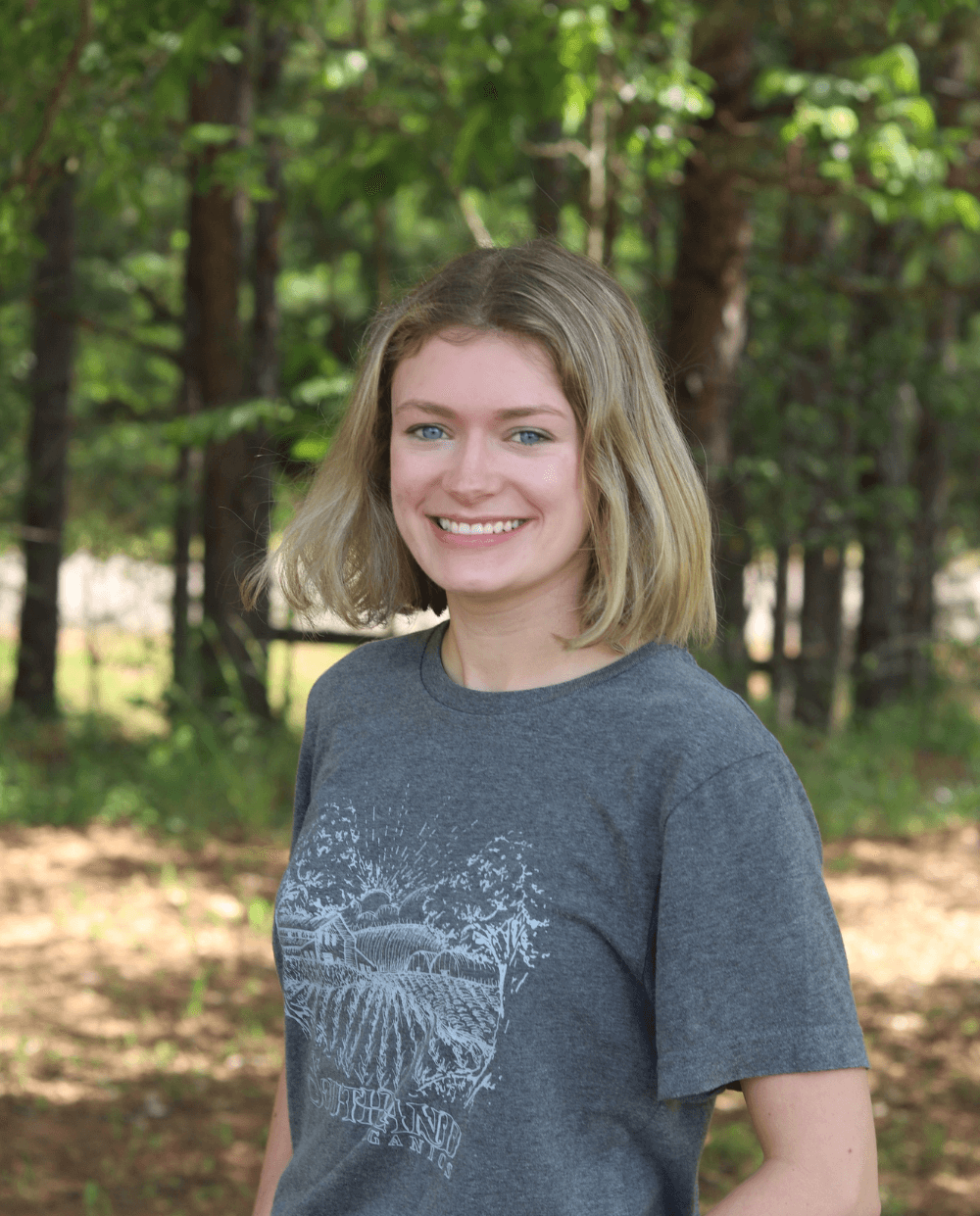We just started a chicken coop on our property, and we are so excited to raise some happy, healthy chicks and enjoy fresh eggs. Our new coop got us thinking about two pretty common health issues in chickens: Vent gleet and pasty butt.
Watch below to see our poultry specialist Alyssa explain why vent gleet happens, how it works and how you can get your birds through it. Then, read on to learn about pasty butt, an issue that may cause your backyard chickens' vent gleet.
What is Vent Gleet?
First of all, let's get one thing straight: Vent gleet and pasty butt are NOT the same thing! If you're a backyard chicken keeper, you've probably heard the term "pasty butt." This refers to sticky feces clogging a bird's butt. Vent gleet is an infection of the cloaca, or vent, of the bird. Pasty butt is one preexisting condition that can cause vent gleet.
In all birds, the vent is the common external opening of the urinary tract, reproductive tract and digestive tract. The vent area is also known as the cloaca. The point of the vent is to allow birds to prolong the excretion of bodily waste so that they can fly or brood for extended periods of time.
Cloacal health is a strong indication of overall chicken health. A healthy bird with good cloacal health should produce tightly packed droppings with white caps on them and have a generally clean vent area.
However for many reasons, an infection in the vent can occur and chickens will experience what's commonly known as vent gleet. This is a general term for the oozing or inflammation of the vent area.
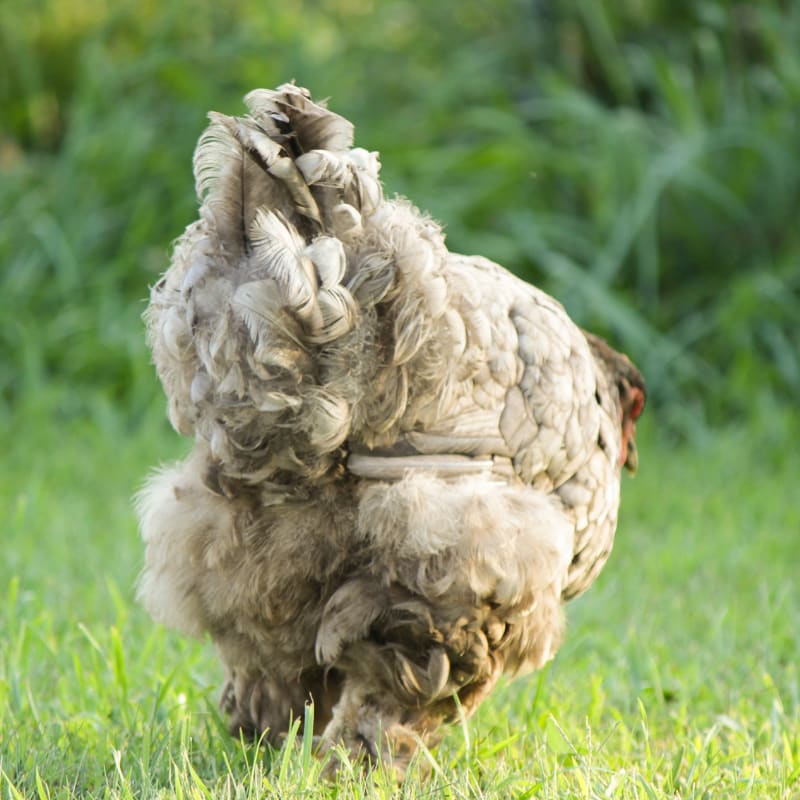
What causes vent gleet in chickens?
Since the vent is the intersection of the digestive, reproductive and urinary tracts, there are plenty of reasons for why it may get infected. Some of the most common reasons for vent gleet are acute stressors, bowel infection or hormone fluctuations. Pasty butt can also lead to vent gleet.
Acute Stressors
Acute stressors can include anything from changes in the chickens' temperature to a lack of drinking water. Making your chickens' surroundings as stress-free as possible is one important way to prevent vent gleet and other discomfort for your flock!
Hormone Fluctuations
Fluctuations in breeding hormones can also cause vent gleet. These fluctuations are most often associated with hens and occur during the onset of lay or brooding or in response to stressors.
Underlying Bowel Infection
One of the most common causes of Vent Gleet, however, is an underlying bowel infection. In this case, bacteria from the gut can colonize the vent area, causing an infection. This is made possible due to watery feces and pH increases. Once these changes occur, it is much easier for fungus such as Candida albicans and bacteria to colonize and cause more severe signs and symptoms.
Pasty Butt
Pasty butt occurs when a chicken's butt gets clogged with feces. This is most
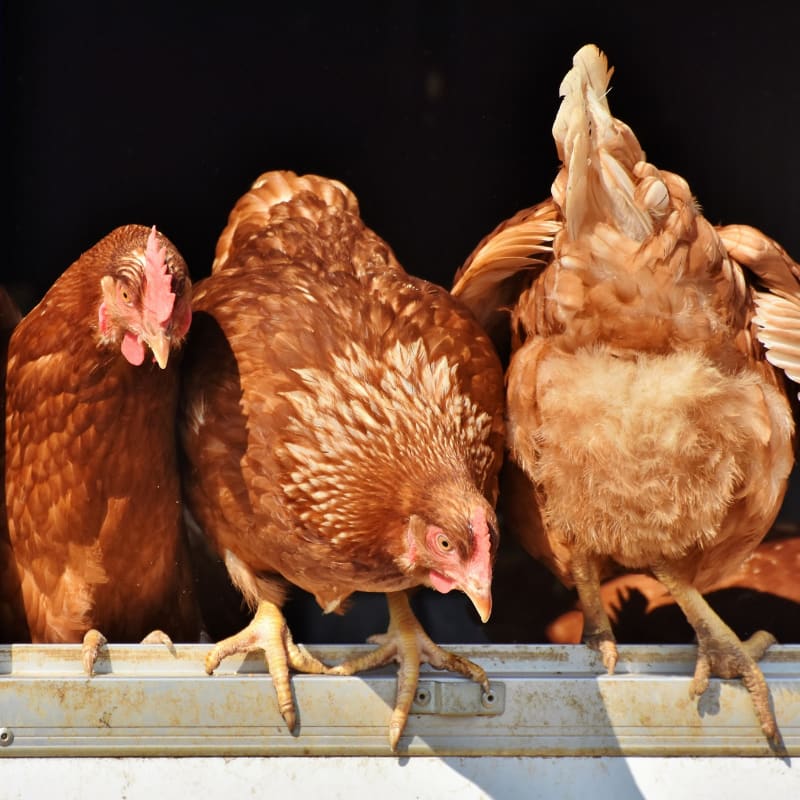
common in chicks, whose feces is more likely to be sticky. This unusually sticky poop can clog the vent area and stick to vent feathers, which could then cause an infection in the vent area and thus cause vent gleet.
Stressors, an infection, hormone fluctuations or pasty butt could all be to blame for vent gleet in chickens. Any of these could lead to inflammation and infection of the cloaca and subsequently any of the tracts attached.
Bottom line, it's best to prevent vent gleet in your chickens by taking care of their gut health- more on that soon! But don't lose your marbles if your chickens get vent gleet. It can be treated relatively easily and is usually not fatal.
Vent Gleet Signs and Symptoms
The key sign of vent gleet is swelling and discharge around the vent, or cloaca. Other signs of vent gleet include swollen or bulging bellies and sudden loss of feather color or shine. You may also notice reduced feed or water intake and changes in posture.
Signs of more progressive, serious infection may include bloody droppings, chickens straining to defecate or a lack of feathers around the vent.
Vent gleet is not fatal if identified and treated quickly. But if the infection goes untreated in your birds for too long, it could get serious and become more dangerous to them. Advanced vent gleet could result in sour crop or mortality.
How to Treat Pasty Butt
If you notice your chickens have a clogged or pasty vent area, the main action you need to take is to clean it out. All the dried feces and discharge clogging the vent needs to be gently removed so that your chickens don't develop vent gleet or face serious health consequences.
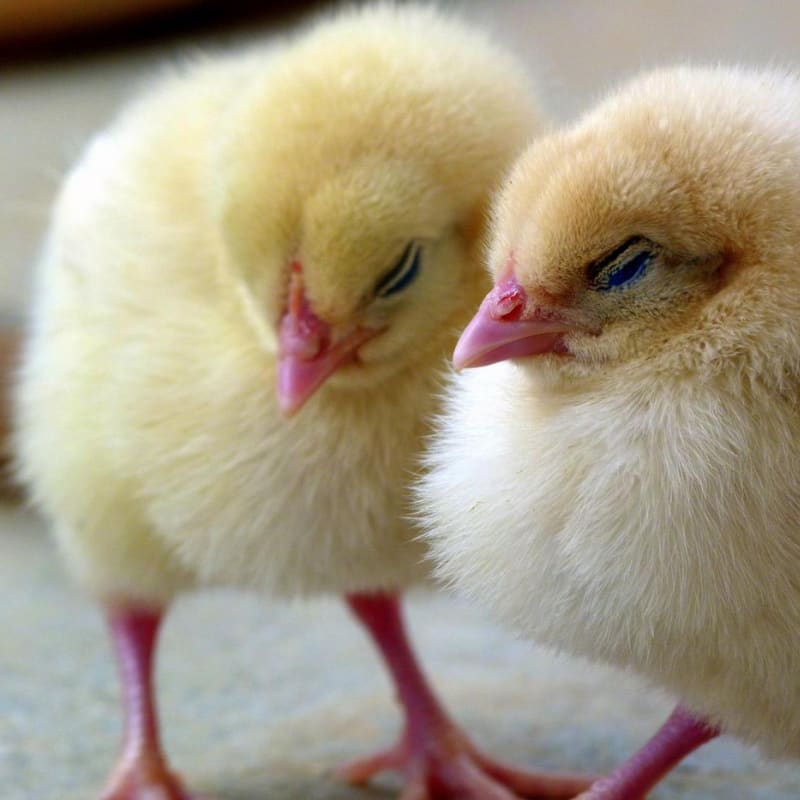
Next, it's important to restore a healthy balance to your chickens' guts. Don't use antibiotics to treat pasty butt! Antibiotics kill both good and bad bacteria, and chickens with pasty butt really need good bacteria. Instead, use a probiotic like Hen Helper or Big Ole Bird to build their healthy gut bacteria back up.
You can also treat chickens with a topical yeast infection treatment on the vent in order to control the fungal infection externally.
Give your birds a probiotic every day for one week, then switch it with an apple cider vinegar that includes the mother. This will help clean out their digestive tract and tighten their gut.
How to Prevent Vent Gleet
Remove Stressors
Vent Gleet prevention, while daunting, often comes down to helping your birds handle bodily stressors as quickly and efficiently as possible. One way to do this is by removing some stressors from their environment such as avoiding excessive noises, preventing pesky mites, and ensuring access to plenty of feed and fresh water.
However, the best way to keep your birds healthy is to give them the proper tools to handle stressors and infections internally. This starts with a healthy gut and a nutritious diet!
Supplements for Gut Health
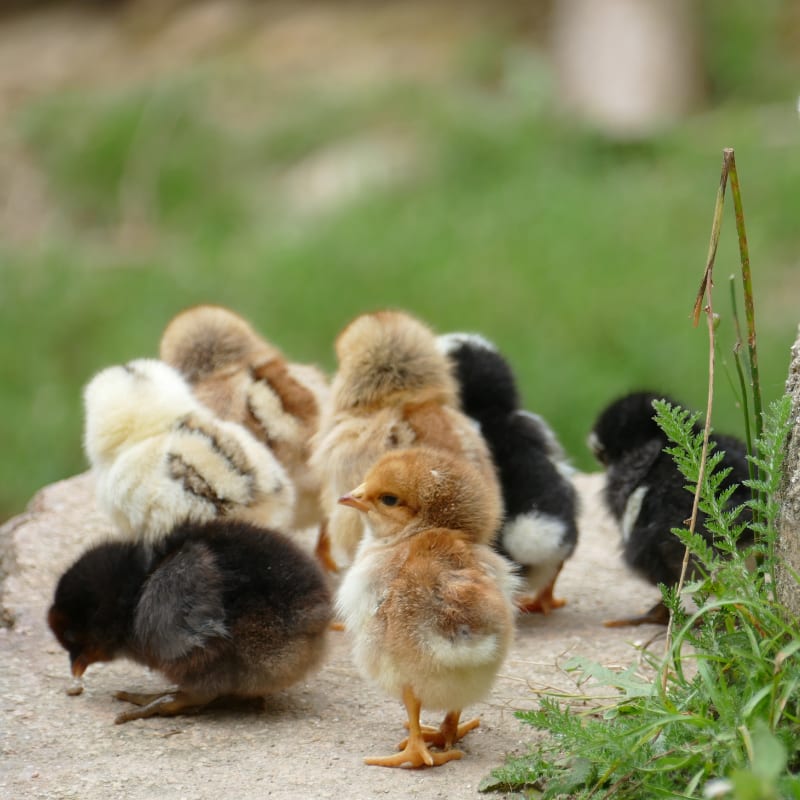
What's even better than treating vent gleet? Preventing it! You can give your backyard chickens supplements for chick feed and coop waterers that will help make them more prepared to battle and prevent both vent gleet and pasty butt. Giving your chickens apple cider vinegar (like Mother Load) and poultry probiotics in rotation is our top recommended method for regular, lifelong gut health.
Giving your birds a probiotic regularly can improve their overall gut health and resistance to disease. At Southland Organics, we manufacture a poultry-specific probiotic Hen Helper. It supports your hens producing cleaner eggs by tightening the gut, and can even aid in firming egg shells since it improves nutrient absorption!
Baby Chicks with Pasty Butt
It's not uncommon for young chicks to get pasty butt. Newly hatched chicks often have yolk remnants in their guts. This remaining yolk is what causes their poop to be unusually sticky, which makes it stick to their down (feathers), which makes it clog their butt.
What happens if a baby chick gets pasty butt?
If your chicks get pasty butt, you should clean out the clogged poop from the vent as soon as possible. Note that a chick's belly button and the vent are different: The vent is directly below the tail feathers, and the belly button is between the vent and the chick's legs.
Clean the Chick's Butt
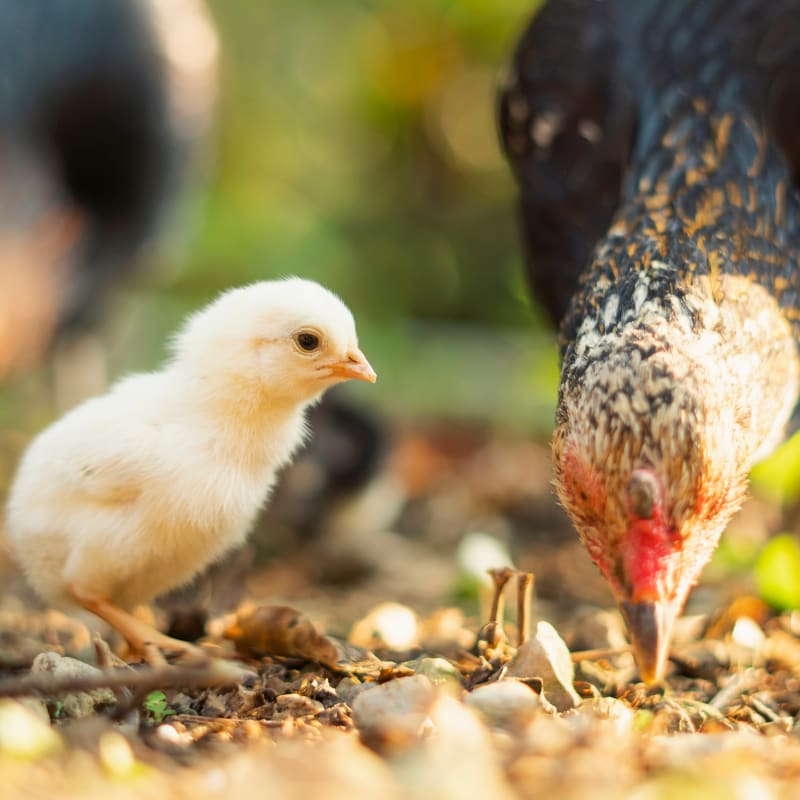
Cleaning chicks' vent areas soon after you discover pasty but is important, but don't rush it! Since they can't regulate their body temperature yet, your chicks might get too cold if you fully bathe them. Instead, just wet around the vent area, being especially gentle with the chick's skin. Keep the chicks warm after getting them wet!
All in all, ensuring your chicks and chickens have a strong immune system and gut health will help them prevent and fight both pasty butt and vent gleet.
Questions?
If you have any questions about backyard chicken care or our products, please reach out to support@southlandorganics.com. If you have a topic you'd like us to cover, please let us know! We want to be a resource for you as you experience the joys of raising chickens.

